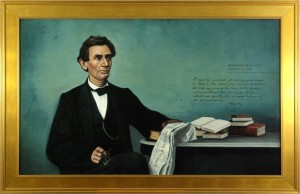In Praise of Flip-Floppers
Consider the flip-flopper critique, one of the more common tools of attack in contemporary politics. Ron Paul has used it against Newt Gingrich. Many have used it against Mitt Romney. Some call President Obama the “flip-flopper-in-chief”; others speak similarly of Governor Walker. The term is efficient—in just a few syllables, it suggests that the target is at once unprincipled, untrustworthy, and unpredictable. But “flip-flopper” is often better at obfuscating than revealing. In this post, I want to briefly highlight one problem with the term’s common usage.
And here’s the problem: while flip-flopper denotes a person who has changed positions without justification, political discourse frequently abuses this meaning by failing to engage sufficiently the question of whether any given change is in fact justifiable. The common implication seems to be that all position changes are tactical and Machiavellian, and that the best candidate is the one who will most steadfastly adhere to his initial policy positions. But of course not all flip-flops are created equal. By glossing over potential justifications, standard flip-flopper critiques both encourage criticism of some praiseworthy position changes, and encourage praise of some blameworthy refusals to change course.

